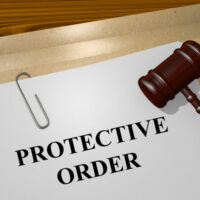Civil Remedies For Domestic Violence

Domestic violence cases can lead to civil and criminal legal actions in the state of Maryland. There are differences between the two. Criminal charges are related to charging an individual with breaking laws, in these situations the accuser becomes a state witness. But if a person is a victim of domestic violence and they are seeking protection, a civil remedy could be the correct approach.
If you are seeking a path to justice, connect with a Baltimore crime victim lawyer. Financial recovery for injuries could be possible and there are paths to putting protection orders in place. Psychological pain, injuries, and financial loss have a wide-ranging impact on a domestic violence victim’s life. To understand what options are available for you, talk to a legal professional.
Protective Orders and Maintenance Payments
Many victims of domestic violence seek protective orders, which are a civil action. Essentially, the person is asking the courts for no contact with the other party. These orders can be very detailed. Courts can grant protective orders that state the defendant in the domestic violence case is not permitted to go to the accuser’s home, place of work, or school, for example.
When there are children involved, the court can also make temporary custody decisions within a protective order. Family maintenance payments could also be part of a protective order. After all, an accuser may need financial support in order to pay all of their daily bills, including housing costs, utilities, and food.
If a person violates a protective order, they could be held in contempt. Penalties include fees and incarceration. In some instances the individual who requested the protective order returns to court to ask for a modification. While it is possible to roll back or modify a protective order, the person’s reason for doing so needs to be clear. Judges are not quick to drop or modify orders, there needs to be a reason for the request.
Prosecutors and Criminal Charges
While the accuser has control over requesting protective orders, and in some situations the dropping or modifications of those orders, a criminal charge is not in the control of the accuser. After a domestic violence event, the defendant could be criminally charged with assault. At this point, the prosecutor of the case will be the one who decides to pursue the case, they do not have to follow the wishes of the accuser. This is true even if the accuser asks the prosecutor to drop the charges.
Crime victims often do not understand the differences between civil and criminal charges, but knowing what options are in your control and what actions are moved forward by other parties can be helpful in your path to healing. Talk to a Baltimore crime victim lawyer to learn more.
Were you a victim of violence in Baltimore? To discuss a strong path forward, contact Iamele & Iamele, LLP. Our experienced legal team works diligently to protect the rights of victims and recover financial damages on their behalf, when possible. Contact us today for a confidential, no-cost consultation.

